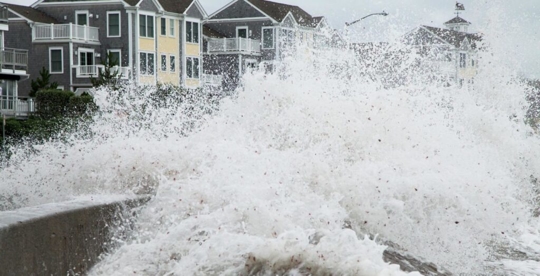Is it Possible To Add Hurricane Coverage to Insurance Policies?
Many home and business owners that live in hurricane-prone areas may wonder if it is possible to add hurricane coverage to insurance policies. According to Insurance Journal, through the end of 2020 property insurers paid out or reserved $7.7 billion for claims associated with Hurricanes Laura, Delta, and Zeta in Louisiana. There were 290,847 claims filed as of December 31, 2020, for the three hurricanes, but only 56 percent had been closed with payments made to the homeowners.
These figures do not include claims and payments made through the National Flood Insurance Program. FEMA reported in January 2021 that NFIP had paid more than $110 million in flood claims to 3,249 Louisiana policyholders. These figures were for Delta and Laura, but not Zeta. Laura, a Category 4 storm, struck Southwest Louisiana on August 27, 2020. Delta, a Category 2 storm, struck Southwest Louisiana on October 9, 2020. Zeta was also a Category 2 storm, making landfall in Terrebonne Parish on October 28, 2020.
If you are being stalled regarding your hurricane insurance claim—or your claim has been outright denied—you need a strong legal advocate. Peter Diiorio at Gulf Coast Insurance Attorneys, can help you during this difficult time. We will fight aggressively for you, your family, and your future.
Are There Different Types of Insurance Claims That Can Help Me Rebuild Following a Hurricane?
Following a hurricane, you will file a claim through your homeowner’s insurance, and if you have flood damage, through your flood insurance as well. Your flood insurance could have been purchased through the same company as your homeowner’s insurance or could have been purchased through NFIP directly.
Read your homeowner’s policy carefully to determine what level of coverage you have for hurricane damage. If you have added windstorm coverage and you also have flood insurance, you are likely to be as well-covered as possible for the hurricane damage to your home. As noted below, if you have added windstorm coverage to your homeowner’s policy you may have a significant deductible.
In addition to basic homeowner’s coverage, broad insurance coverage protects against things like burst pipes and falling objects. Special homeowner’s coverage protects against more hazards, with the exception of events like hurricanes and earthquakes. Tenant insurance applies to personal property, while comprehensive insurance provides coverage for home and personal property involving most dangers. Owners of condo units can purchase special condominium insurance, and those unable to purchase insurance due to the risky nature of their property may purchase through Louisiana Citizens Property Insurance Corporation.
Is There Such a Thing as Hurricane Insurance?
For Louisiana—and 17 other states—windstorm coverage is now being offered as a part of regular homeowner’s policies. Even if your homeowner’s policy includes windstorm (hurricane) damage, be aware that your deductible is likely to be considerably higher than your deductible for other damage.
As an example, even if you have a $500 deductible on most claims, your deductible for windstorm damage can be from 1-5 percent. This means if your home is insured for $250,000, and you have a 3 percent hurricane deductible, you would have to pay the first $7,500 in damages to your home before the hurricane insurance would kick in.
What are the Homeowner’s Elections and Exclusions Regarding Hurricane Insurance Policies?
When purchasing homeowner’s insurance, it is extremely important to be knowledgeable regarding elections and exclusions. Exclusions are the things that are not covered under your standard homeowner’s policy. Your agent may not specifically tell you about these exclusions, so you should read through your policy carefully. The most common exclusions on homeowner’s policies include:
- Damage caused by flooding;
- Earthquakes or earth movement (landslides, mudflows);
- Maintenance (updating plumbing or electrical systems or replacing a leaky roof);
- The full cost of high-value items (art, jewelry, collectibles);
- Mold (generally an insurance exclusion unless the mold resulted from a covered peril);
- Pests, like insects and rodents, and
- Home-based businesses.
If you live in an area prone to flooding, hurricanes, or earthquakes, you will likely need to purchase an additional policy or add an endorsement or election to your current policy. And, although your homeowner’s policy probably includes liability insurance in the event someone is injured on your property, this coverage does not typically extend to a home-based business. This means that if a client suffers a slip and fall on your icy sidewalk while visiting your home office, your homeowner’s policy may not cover the expense.
You can add elections or endorsements to your homeowner’s policy to cover items that are typically excluded. Thus, you can add flood insurance to your homeowner’s policy as well as windstorm damage. You can increase the amount of coverage for your high-value items, and can purchase additional coverage for your home-based business. Mold can be trickier, although if you have flood insurance and do absolutely everything right, your insurer might pay for mold remediation.
How Can Gulf Coast Insurance Attorneys Help Me Following Hurricane Damage?
If your New Orleans, LA home has suffered damage from a hurricane and your insurance company is refusing to pay—or dragging its feet—Gulf Coast Insurance Attorneys can help. We understand the financial stress you are under and can alleviate much of that stress by handling your claim. If you need an advocate in your corner—someone who truly cares about your future—contact Gulf Coast Insurance Attorneys today!

